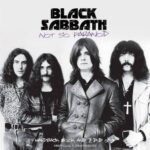Over the decades, the relationship between Robert Plant and John Paul Jones has been a complex blend of mutual respect, shared legacy, and occasional personal distance. In Led Zeppelin, John Paul Jones was often the quiet backbone of the group. Beyond his roles as bassist and keyboardist, Jones’s influence extended deeply into arranging and composing, helping shape the band’s genre-defying sound with subtle yet essential contributions. Robert Plant admired Jones’s musicianship profoundly, recognizing the talent and creativity that underpinned the band’s success. However, their personalities stood in contrast—Plant’s flamboyant, charismatic stage presence was a foil to Jones’s reserved, introspective demeanor, which often kept him behind the scenes.
After Led Zeppelin’s breakup in 1980, Plant and Jimmy Page remained in the public eye, frequently collaborating and touring together, whereas Jones chose a more understated path. He focused on a quieter, though highly respected, solo and production career, often stepping away from the spotlight. This divergence in their public lives reflected their different approaches to music and fame.
One of the more painful moments in their relationship came during the 1990s when Jones was notably excluded from the Page and Plant reunion tours. Jones later joked about discovering his exclusion through newspaper reports, highlighting the emotional sting, yet he never publicly expressed bitterness or anger. This episode marked a low point but didn’t sever their professional ties.
By the time of Led Zeppelin’s 2007 reunion at the O2 Arena, the trio had reconciled professionally, with Plant openly praising Jones’s brilliance and vital contributions to the band’s legacy. Although Jones and Plant have not collaborated closely since, their bond endures, deeply rooted in the extraordinary and powerful legacy they forged together in Led Zeppelin—a testament to their unique, if sometimes complicated, partnership.










